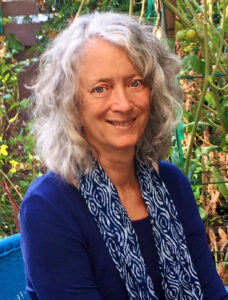
The first thing people hear when they receive a diagnosis of cancer is an urgent recommendation to take immediate action – most often with surgery, chemotherapy, hormonal therapy, or radiation therapy.
Some or all of these therapies may, of course, be indicated. But it’s always wise to take all possible factors into account.

While speed will be of the essence, it’s always smart to review all our treatment options, and find an oncologist with whom we can have meaningful conversations, discuss individualized treatment protocols, and consider the lifestyle choices that can speed recovery, or delay it or even prevent it.
At Pacific Naturopathic, we advise our cancer patients to have a 12-hour fasting Wellness Panel before they initiate conventional treatment, to help us evaluate their kidney, liver, cardiovascular, and thyroid function, blood sugar balance, any inflammatory issues or nutrient deficiencies, and more.
With any disease, there are two special factors that we need to take into consideration: the receptivity of the host (your body), and the virulence of the disease.
Hosts are more receptive to disease (1) when their systems aren’t functioning optimally, (2) when inflammation is rampant, and (3) when crucial nutrients are lacking.
Conventional cancer treatments may obliterate cancer cells without treating the underlying physiological or emotional states that have promoted the disease in the first place.
In hormone receptor-positive cancer, for example, it’s crucial to have a Dry Urine Hormone Balance Test.
Diet plays a huge role in cancer:
- Commonly consumed non-organic foods contain hormonally disruptive and inflammatory pesticides.
- Feedlot meats are full of chemicals and antibiotics.
- Poultry and cow’s milk will often contain hormones.
- Sugars and simple carbs are a preferred food for cancer cells.
- Deep-fried foods and the use of bad oils (trans fats, hydrogenated oils, fried foods, etc.) promote inflammation, which promotes cancer.
The positive side of the diet ledger:
- Beneficial anti-inflammatory fats (including omega-3 fatty acids) are found in oily fish such as salmon, herring, and mackerel, as well as flax seeds and algae.
- Five to seven servings of vegetables (and, secondarily, fruit) plus 45 minutes of aerobic exercise daily have been proven highly beneficial in the prevention and relief of estrogen and progesterone receptor negative breast cancer, a cancer that is more difficult to treat than hormone receptor positive cancer.
- Increasing the variety of vegetables and fruits will ensure a mixture of favorable nutrients.
- Rotating foods, particularly proteins, decreases the development of sensitivities at times when cancer therapies may be compromising gut integrity.
- Regarding exercise, the 45 minutes of daily aerobic exercise promotes favorable estrogen metabolism, oxygenates the blood, enhances circulation and lymphatic flow, and triggers endorphin release. Just 5-10 minutes of walking after meals lowers insulin levels and promotes blood sugar balance.
- Sweating during exercise promotes detoxification, as environmental chemicals are released through sweating.
- Infrared saunas are beneficial for the same reason, and are integral to some cancer treatment protocols.
- Meditation is another vitally helpful lifestyle tool. The brain changes that come with regular meditation improve mood, support the immune system, and promote better sleep.
About Telomeres
Meditation has been shown to lengthen telomeres. Why is this important in cancer? From the University of Utah’s Genetic Science Learning Center:
Inside the nucleus of a cell, our genes are arranged along twisted, double-stranded molecules of DNA called chromosomes. At the ends of the chromosomes are stretches of DNA called telomeres, which protect our genetic data, make it possible for cells to divide, and hold some secrets to how we age and get cancer.
Telomeres have been compared with the plastic tips on shoelaces, because they keep chromosome ends from fraying and sticking to each other, which would destroy or scramble an organism’s genetic information.
Yet, each time a cell divides, the telomeres get shorter. When they get too short, the cell can no longer divide; it becomes inactive or “senescent” or it dies. This shortening process is associated with aging, cancer, and a higher risk of death. So telomeres also have been compared with a bomb fuse. (link)
All of these benefits decrease initial susceptibility to cancer and have positive effects for cancer patients. Studies have shown that patients who adhere to a favorable diet and exercise routine experience fewer mood disturbances and enjoy a decrease in stress-related symptoms, better cardiovascular and gastrointestinal health, and have more energy and enhanced coping skills.
These lifestyle changes can help prevent cancer and positively impact the effectiveness of conventional and complementary treatments.
For information about the services we offer at Pacific Naturopathic, please give us a call at 650-961-1660, use the convenient Contact Form to get in touch, or follow the link to: Consultations – Pacific Naturopathic. Thank you!
